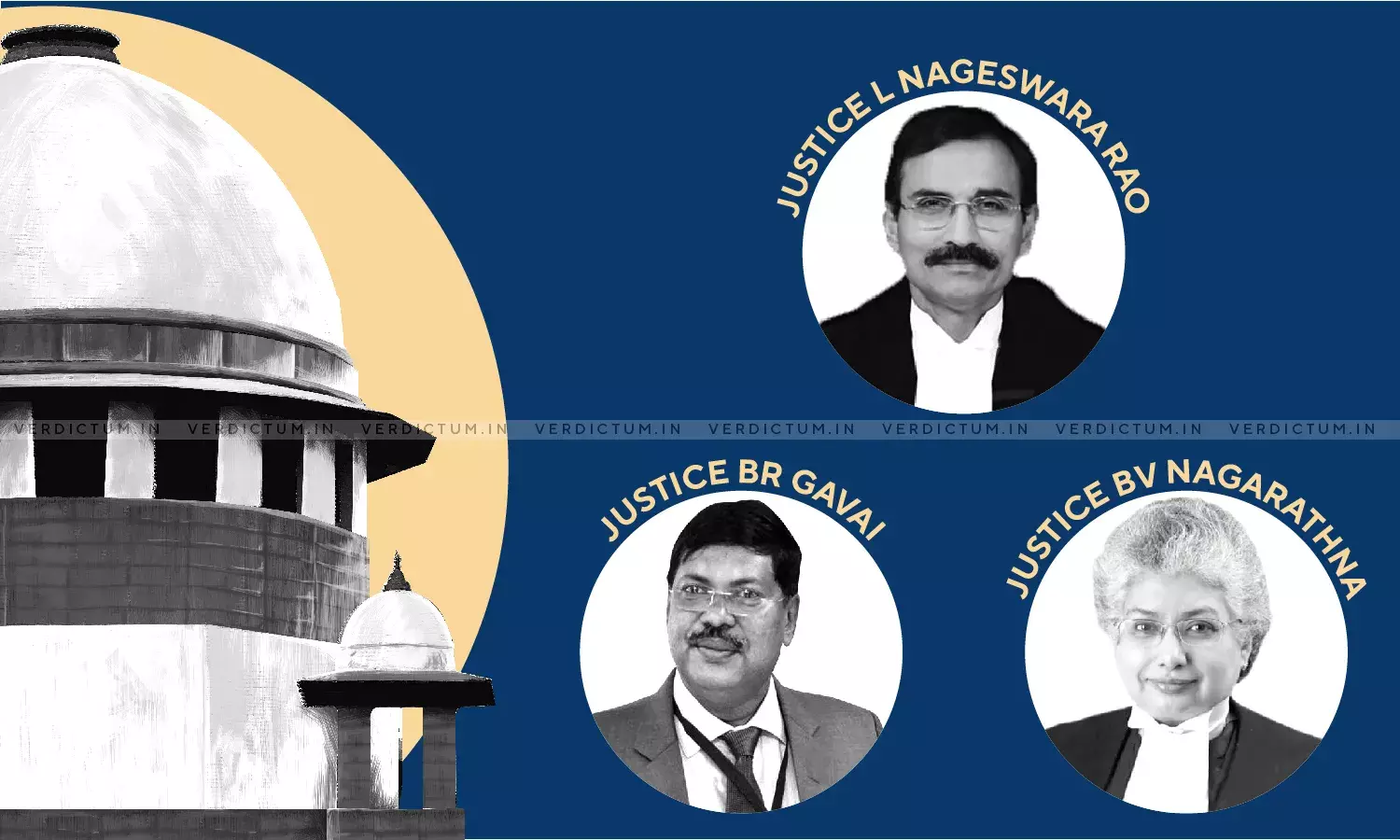Question Of Repeal Of Statute Doesn't Arise Once It Has Been Declared As Unconstitutional By A Court: SC

A three-judge bench of the Supreme Court comprising Justice L Nageswara Rao, Justice BR Gavai, and Justice BV Nagarathna has held, "The very declaration by a Court that a statute is unconstitutional obliterates the statute entirely as though it had never been passed. The consequences of declaration of unconstitutionality of a statute have to be dealt with only by the Court."
Dr. Rajeev Dhawan, Senior Advocate appeared for the Appellants while Additional Advocate General appeared for the State of Manipur and Mr. Narendra Hooda Senior Advocate appeared for a set of respondents.
The Assam Parliamentary Secretaries (Appointment, Salaries, Allowances and Miscellaneous Provisions) Act, 2004, that had similar provisions to The Manipur Parliamentary Secretary (Appointment, Salary and Allowances, and Miscellaneous Provisions) Act, 2012 was the subject matter of challenge before the Gauhati High Court. The writ was transferred to the SC and the Court in Bimolangshu Roy v. State of Assam & Anr., (2018) 14 SCC 408 declared that the legislature of Assam lacked the competence to enact the said Act.
A repealing Act was introduced. In the interregnum, certain Appellants resigned from the post of parliamentary services. The 2012 Act and repealing Act were declared unconstitutional by the High Court. Against this judgment, appeals were preferred before the Supreme Court.
The Court noted that Article 164(1) of the Constitution provides that the Chief Minister shall be appointed by the Governor and other Ministers should be appointed by the Governor on the advice of the Chief Minister.
It was contended that the decision in Bimolangshu Roy needs reconsideration.
The Court noted that no room for doubt was left that after enacting the Repealing Act 2018, the 2012 Act did not survive and the High Court ought not to have considered the constitutional validity of the same.
The Court made the following observations:
"However, the 2012 Act was not dealt with by this Court and the same continued to be valid till it was repealed. Indeed, the 2012 Act was not declared unconstitutional by any court before the High Court delivered the impugned judgment and therefore, it was well within the competence of the Manipur Legislature to repeal the 2012 Act. The High Court has committed an error in holding that the Manipur Legislature did not have the competence to enact the 2012 Act as a result of which, the Repealing Act, 2018 could not have been made. The law passed by the legislature is good law till it is declared as unconstitutional by a competent Court or till it is repealed. There is no error committed by the Manipur Legislature in repealing the 2012 Act in light of the judgment of this Court in Bimolangshu Roy (supra)."
The Court then considered the validity of the saving clause in Repealing Act. The Court noted that where a Statute is adjudged to be unconstitutional, it is as if it had never been. The Court noted that rights cannot be built up under it. The Court noted that an unconstitutional law is void ab initio.
The Court noted, "A declaration of unconstitutionality brought about by lack of legislative power as well as a declaration of unconstitutionality brought about by reason of abridgement of fundamental rights goes to the root of the power itself, making the law void in its inception."
The Court noted that saving past transactions are within the exclusive domain of the Court and though the consequence of repeal is also obliteration of the Statute with retrospective effect, the legislature is empowered to introduce a saving clause in the repealing Act.
The Court noted that there is a distinction between the declaration of a statute as unconstitutional by a Court of law and the repeal of a statute by the Legislature.
The Court noted the following important principles of law:
"I. A statute which is made by a competent legislature is valid till it is declared unconstitutional by a court of law.
II. After declaration of a statute as unconstitutional by a court of law, it is non est for all purposes.
III. In declaration of the law, the doctrine of prospective overruling can be applied by this Court to save past transactions under earlier decisions superseded or statutes held unconstitutional.
IV. Relief can be moulded by this Court in exercise of its power under Article 142 of the Constitution, notwithstanding the declaration of a statute as unconstitutional."
The Court noted that the repeal of the 2012 Act was a procedural formality to give a logical conclusion. The Court noted that bearing in mind these exceptional facts, it was of the opinion that by means of saving clause the Manipur Legislature could not have infused life into legislation which was recognized by the legislature itself as unconstitutional.
However, the Court in the exercise of powers under Article 142 of the Constitution considered it necessary to save only those acts, deeds, and decisions duly undertaken by the Parliamentary Secretaries under the 2012 Act during their tenure.
The Court held that the Manipur Legislature was competent to enact the Repealing Act. The saving clause was struck down. However, the above-mentioned acts were saved.
Click here to read/download the Judgment

